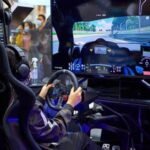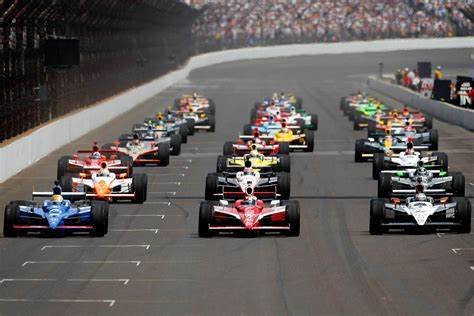Virtual racing has emerged as a transformative force within the world of motorsports, reshaping how enthusiasts engage with racing, how drivers prepare for real-life competition, and how the sport itself evolves. As technology continues to advance, the integration of virtual racing into international motorsports has become increasingly prominent. Here’s an exploration of the multifaceted role that virtual racing plays in the broader motorsports landscape.
- Driver Development and Training
Realistic Simulation
Modern racing simulators leverage advanced physics engines and high-quality graphics to create realistic driving experiences. This immersive technology allows professional drivers to practice and refine their skills in conditions that closely match what they would encounter on real racetracks.
Cost-Effective Training
Virtual racing provides a cost-effective means for drivers to gain valuable track time without the financial burden associated with real-world racing. With significantly lower costs for equipment maintenance, travel, and track fees, drivers can practice more frequently, honing their skills and developing their race craft.
Data Analysis
Many racing simulators offer telemetry and data analysis tools, providing drivers with immediate feedback on their performance. This data allows drivers and coaches to analyze lap times, braking patterns, and racing lines, enhancing their understanding of vehicle dynamics and improving their overall performance.
- Talent Identification and Pathways
Discovering New Talent
Virtual racing platforms have opened up new pathways for aspiring drivers. Online competitions and esports tournaments provide a platform where talent can be recognized, regardless of geographical location or financial resources. This democratization of motorsport allows new competitors to emerge from diverse backgrounds.
Transition to Real-World Racing
Success in virtual racing can act as a stepping stone for drivers looking to break into the motorsport industry. Many professional racing teams closely monitor virtual racing leagues and esports competitions, scouting for promising talent who can seamlessly transition from the virtual to the real world.
- Fan Engagement and Community Building
Accessible to Fans
Virtual racing has made motorsports more accessible to fans around the world. Whether through simulators or esports events, fans who may not be able to attend live races can still engage with the sport, building a larger community of motorsport enthusiasts.
Social Interaction
Online platforms allow fans to interact with each other and participate in discussions, creating a sense of camaraderie. Streaming platforms and social media bring fans closer to drivers, teams, and the racing community, offering insights and behind-the-scenes content that enhances the overall experience.
Esports Competitions
The rise of esports has led to the establishment of dedicated virtual racing leagues, such as the Formula E Race at Home Challenge and the virtual Le Mans series. These competitions attract significant viewership, engaging a younger demographic and generating new interest in motorsport.
- Promotion of Global Events
Expanding Reach
Virtual racing enables international competitions to be broadcast online, reaching audiences far beyond traditional media coverage. This globalization helps promote local motorsport events while increasing visibility for sponsors and partners involved in the racing industry.
Bridging Distance
In times when physical travel is restricted (e.g., during pandemic situations), virtual racing serves as a bridge, allowing teams and drivers to continue competing and engaging with fans despite geographical constraints. This continuity is vital for maintaining interest and momentum within the sport.
- Technological Innovation
Advancements in Simulation Technology
The demands of virtual racing have driven advancements in technology, benefiting both the gaming and motorsport industries. Innovations in graphics, haptic feedback, and artificial intelligence are continuously refining the simulation experience, paving the way for new possibilities in real-world racing technology.
Research and Development
As manufacturers invest in virtual racing, they utilize these platforms to test and develop new technologies that can eventually be applied to their real-world vehicles. This synergy between virtual and actual racing accelerates the pace of innovation.
- Sustainability Initiatives
Reducing Environmental Impact
With the increasing focus on sustainability in motorsports, virtual racing presents a solution by reducing the environmental impact associated with transportation and material consumption. It offers a way to keep the competitive spirit alive without the associated carbon footprint of traditional racing.
Promoting Electric and Hybrid Technologies
As international motorsports evolve towards electric and hybrid races, virtual platforms provide a way to promote these technologies and educate fans. Participating in virtual racing events can highlight the benefits of sustainable racing, raising awareness about eco-friendly alternatives.
Conclusion
The role of virtual racing in international motorsports is significant and multifaceted, offering numerous benefits from driver development and talent discovery to fan engagement and technological advancement. As the lines between virtual and real-world racing continue to blur, virtual racing is positioned to play an increasingly important role in shaping the future of motorsports. Embracing this digital evolution not only enhances the competitive landscape but also ensures that the sport remains relevant and engaging in an ever-changing world.









